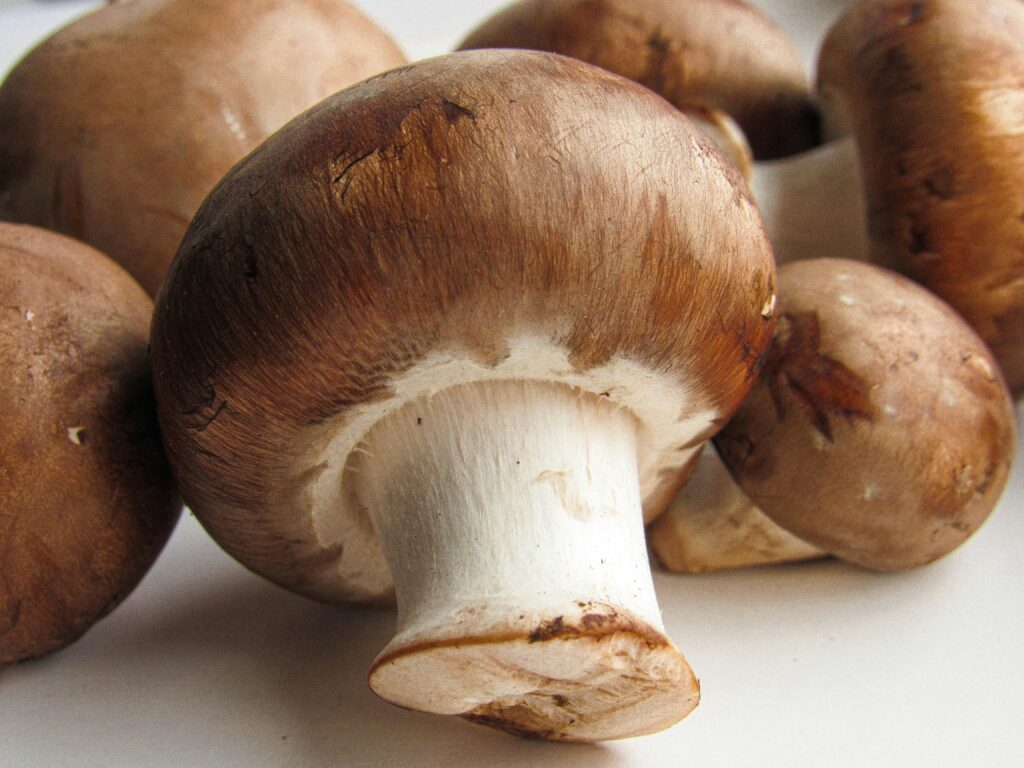The Benefits of Mushrooms.

Mushrooms are incredibly diverse organisms with significant roles in ecosystems, culinary arts, medicine, and culture. From their unique biology and nutritional benefits to their applications in environmental sustainability and medicine, mushrooms have a vast range of uses and hold great promise for the future. It looks like you’d like more information on mushrooms in general! Let me provide a broader overview, including their biology, types, uses, and cultural significance.
Mushrooms are a fascinating group of fungi that are not only delicious but also offer a range of health benefits. Here are some of the main benefits associated with consuming mushrooms:
1. Nutrient-Rich
Mushrooms are low in calories but rich in essential nutrients, such as:
- Vitamins: Especially B vitamins like riboflavin, niacin, and pantothenic acid, which help with energy production and brain function.
- Vitamin D: Certain mushrooms (like shiitake and maitake) can provide vitamin D, especially when exposed to sunlight or UV light.
- Minerals: Including selenium, copper, and potassium, which are important for immune function, heart health, and fluid balance.
- Antioxidants: Such as ergothioneine and glutathione, which help protect cells from damage and reduce oxidative stress.
2. Immune Support
Mushrooms, particularly varieties like reishi, shiitake, and maitake, contain beta-glucans, a type of polysaccharide that enhances the immune system by activating certain white blood cells. They also have anti-inflammatory properties that may help regulate the body’s immune response.
3. Potential Anti-Cancer Properties
Some studies suggest that mushrooms, such as maitake and turkey tail, may have anti-cancer properties. The compounds found in these mushrooms, like polysaccharides and triterpenes, can inhibit tumor growth and support the body’s natural defenses against cancerous cells.
4. Support for Heart Health
Mushrooms can help maintain heart health due to their high fiber content, low fat, and absence of cholesterol. Additionally, they contain compounds like beta-glucans and sterols, which can help lower cholesterol levels and improve overall cardiovascular health.
5. Blood Sugar Regulation
Certain types of mushrooms, such as maitake and reishi, may help regulate blood sugar levels. They contain compounds that can enhance insulin sensitivity and improve the body’s ability to manage glucose.
6. Weight Management
Mushrooms are low in calories, fat-free, and high in water content, making them an excellent addition to a weight management plan. They also contain fiber, which can promote feelings of fullness and reduce overall calorie intake.
7. Gut Health
The prebiotic fiber found in mushrooms, like chitin and beta-glucans, supports the growth of beneficial gut bacteria, promoting better digestive health and overall well-being.
8. Brain Health
Some mushrooms, like lion’s mane, are known to have neuroprotective properties and may help support cognitive function. Lion’s mane, in particular, contains compounds that can stimulate nerve growth factor (NGF), potentially supporting memory and reducing the risk of neurodegenerative diseases like Alzheimer’s.
9. Adaptogenic Benefits
Certain mushrooms, like reishi and cordyceps, are considered adaptogens, which means they help the body adapt to stress and maintain balance. They are often used in traditional medicine to enhance energy, reduce fatigue, and support overall resilience.
10. Support for Bone Health
Mushrooms can be a good source of vitamin D when exposed to sunlight, and vitamin D is essential for calcium absorption and bone health. Including vitamin D-rich mushrooms in your diet can help maintain bone density and reduce the risk of osteoporosis.
Popular Medicinal Mushrooms
Here are some mushrooms that are particularly known for their health benefits:
- Reishi: Known for immune support, anti-cancer properties, and stress relief.
- Shiitake: Supports cardiovascular health and has immune-boosting properties.
- Lion’s Mane: Promotes cognitive health and may improve memory and focus.
- Cordyceps: Enhances energy, endurance, and oxygen utilization.
- Chaga: High in antioxidants and supports overall immune health.
- Maitake: Helps regulate blood sugar and supports immune function.
Incorporating a variety of mushrooms into your diet can offer numerous health benefits. Whether you’re eating them for their nutrients, using them to support immune function, or exploring their potential in natural medicine, mushrooms are a versatile and beneficial addition to any diet.






